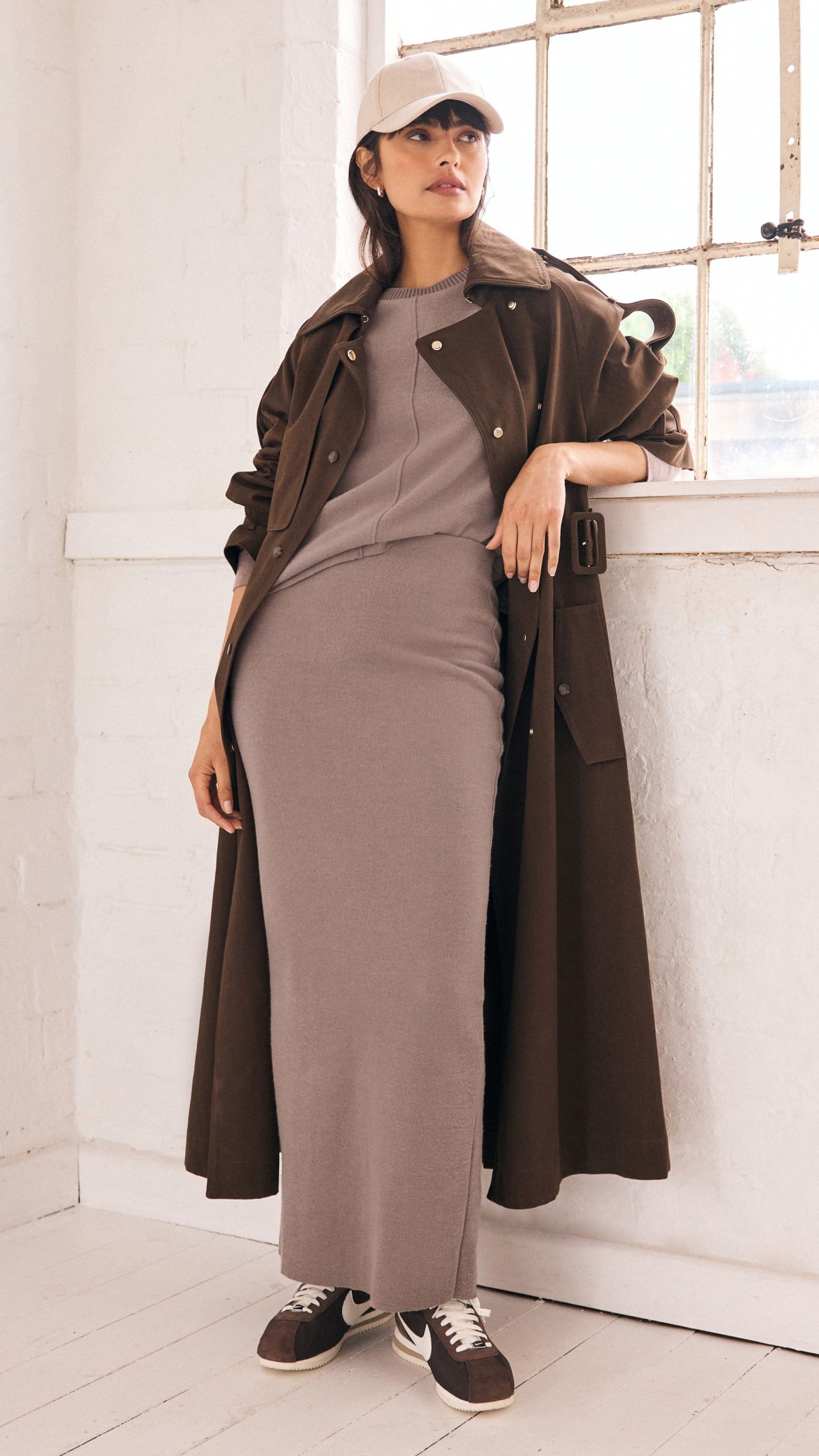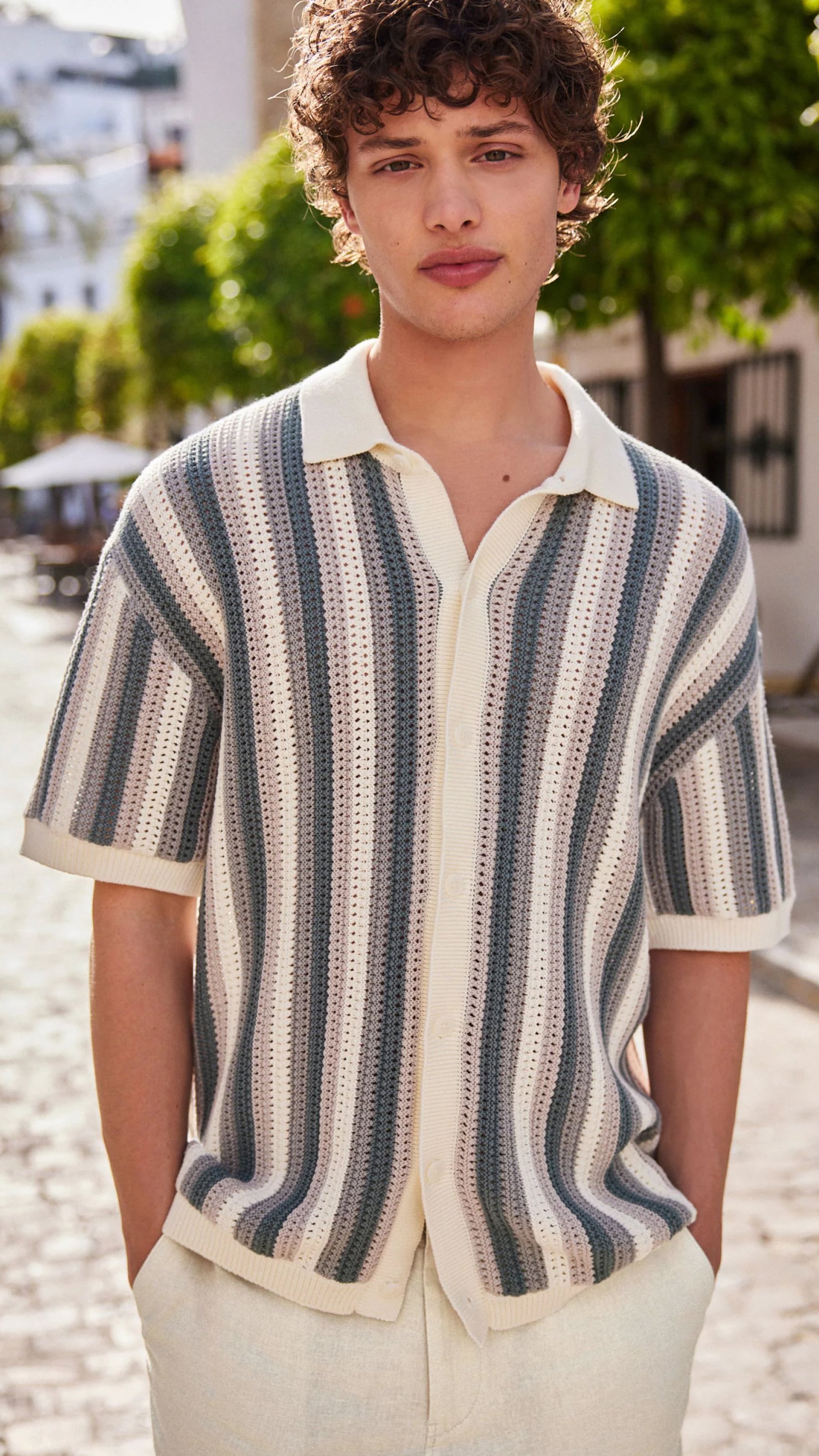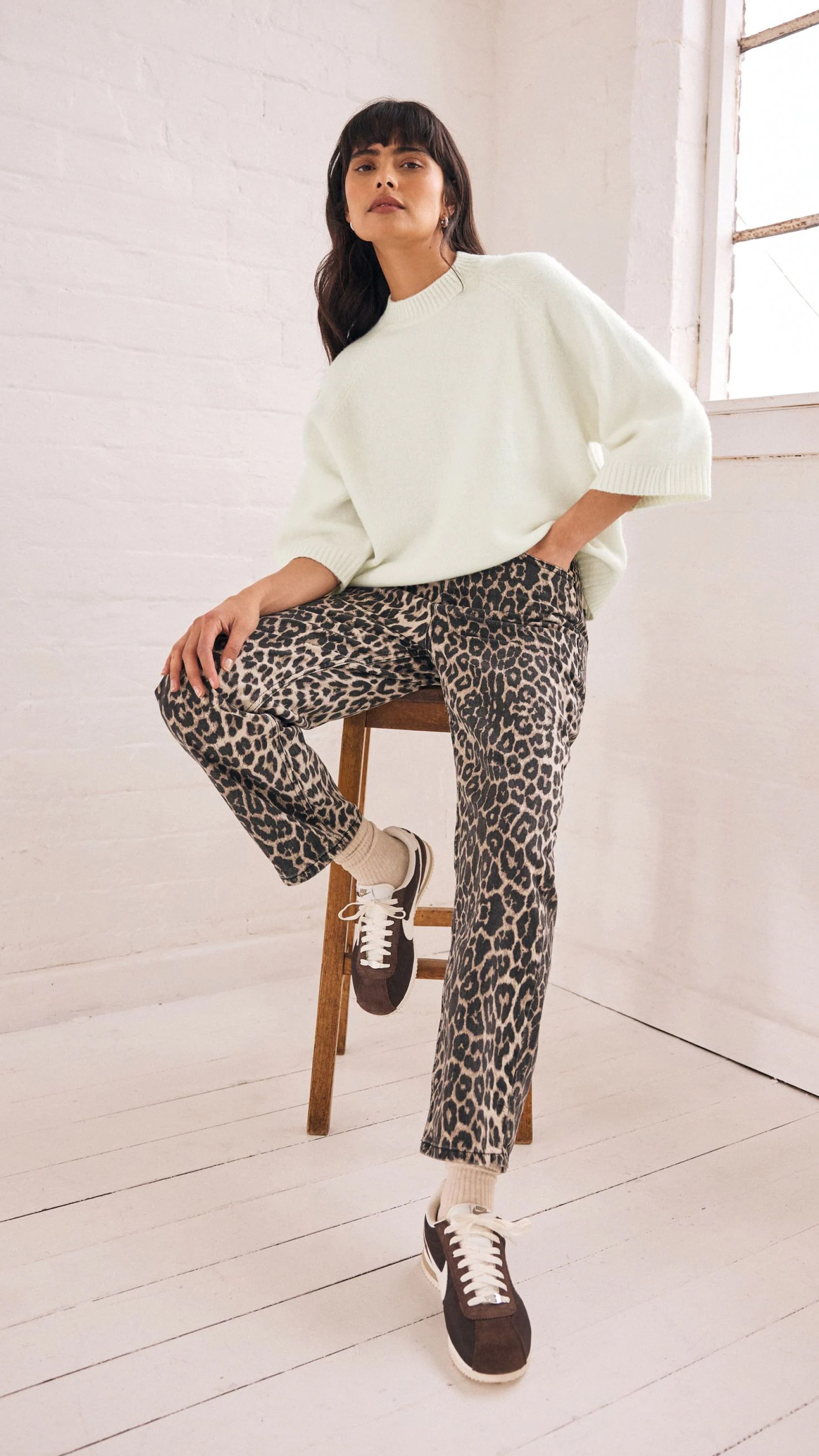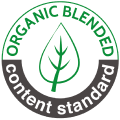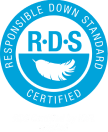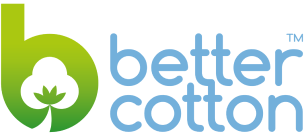
Better Cotton is a not for profit organisation that works to make global cotton production better for the people who produce it, better for the environment it grows in and better for the sector’s future.
Membership to Better Cotton helps fund farmer training across the world.
To become a Better Cotton farmer and earn a Better Cotton licence a farmer must demonstrate they adhere to seven principles: crop protection, water stewardship, soil health, biodiversity enhancement, responsible land use, fibre quality, decent work and management practices. Better Cotton is tracked and verified using the mass balance approach which means a finished product may not physically contain Better Cotton fibres but links the equivalent volume back to farmers so they benefit from the support Better Cotton can offer.
https://www.next.co.uk/better-cotton
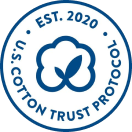
Launched in 2020, the U.S. Cotton Trust Protocol® underpins and verifies U.S. cotton’s sustainability progress which provides the confidence of knowing that the cotton comes from a program with social and environmental integrity.
The Trust Protocol is grounded in science-based measurements that track six key metrics: land use, soil carbon, water management, soil loss, greenhouse gas emissions and energy efficiency. The program also tracks every product's supply chain to ensure it contains U.S. Cotton as verified by the U.S. Cotton Trust Protocol.
NEXT is a member of USCTP and our 3rd party brands also utilise this scheme.
https://consumer.trustuscotton.org
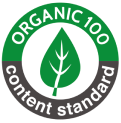
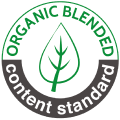
The Organic Content Standard (OCS) is a standard that verifies the content of an organically grown material in a finished product. It uses a chain of custody method of certification to track materials through the supply chain from field to finished product.
Where this standard is used on the NEXT website, the product will be sold with full certification to the standard up to and including the Brand, which controls the chain of custody of the claimed content throughout the entire supply chain from field to finished product.
NEXT is Brand Certified and our 3rd party brands also utilise this scheme.
https://textileexchange.org/organic-content-standard/
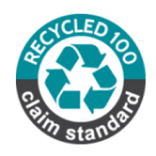
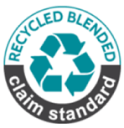
The Recycled Claim Standard (RCS) is a chain of custody standard to track recycled materials through the supply chain to give credibility to recycled content claims on products. Unlike GRS, the Recycled Content Standard does not include environmental or social standards within its standard.
Where this standard is used on the NEXT website, the product will be sold with full certification to the standard up to and including the Brand, which controls the chain of custody of the claimed content throughout the supply chain to the finished product.
NEXT is Brand Certified to the Textile Exchange Standards which control the chain of custody of the claimed content throughout the entire supply chain from recycled material to finished product and our 3rd party brands also utilise this scheme.
https://textileexchange.org/recycled-claim-global-recycled-standard
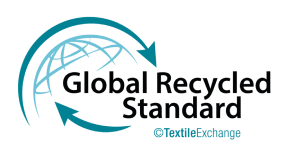
The Global Recycled Standard (GRS) certifies waste material from its origin and tracks it through the supply chain.
GRS also verifies environmental principles and social requirements of the processors for products made from recycled materials. GRS can only be used to verify products containing 50% or more certified recycled material by product weight.
GRS certified products are traceable through a chain of custody system to track certified materials through the supply chain to give credibility to content claims on products.
NEXT is Brand Certified to the Textile Exchange Standards which control the chain of custody of the claimed content throughout the entire supply chain from recycled material to finished product and our 3rd party brands also utilise this scheme.
https://textileexchange.org/recycled-claim-global-recycled-standard

Repreve® polyester is a recycled polyester made by Unifi from recycled plastic bottles. Repreve® polyester is tracked and verified using GRS and RCS certification and through product testing. You will only see the Repreve® logo where the claim has been approved by Unifi.
https://repreve.com/

LENZING™ and ECOVERO™ is a trademarks of Lenzing AG
Lenzing was the first cellulosic fiber producer to set concrete scientifically verified Science Based Targets aiming for a reduction of greenhouse gas emissions. In 2023, Lenzing updated its set ambitious targets of reducing greenhouse gas emissions. Lenzing aims at helping to limit global warming to 1.5°C above pre-industrial levels by reducing absolute scope 1 and 2 greenhouse gas emissions by nearly 50% by 2030. Additionally, Lenzing commits itself to becoming net zero until 2050 (baseline: 2021).* These commitments are approved by the Science Based Targets initiative (SBTi). More information can be found here.
LENZING™ ECOVERO™ fibers are made with at least 50% less carbon emissions and water consumption compared to generic viscose.** More information can be found here.
LENZING™ ECOVERO™ fibers are certified with the widely recognized EU Ecolabel. *** The EU Ecolabel is the European Union’s official voluntary label for environmental excellence. EU Ecolabel products have a reduced environmental impact across multiple stages of the product life cycle. More information can be found here.
LENZING™ ECOVERO™ fibers are produced with a molecular marker. This special identification technology ensures the authenticity and traceability of LENZING™ ECOVERO™ fibers even after processing into textile products. More information can be found here.
NEXT procures LENZING™ ECOVERO™ fibres through their suppliers and these are one of our preferred fibres.
*Minimum of 90% reduction, rest via carbon compensation programs.
**Results based on LCA standards (ISO 14040/44) and available via Higg MSI Version 3.9.1 (December 2024).
***EU Ecolabel for textile products (license no. AT/016/001)
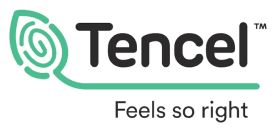
TENCEL™ is a trademark of Lenzing AG
Lenzing was the first cellulosic fiber producer to set concrete science-based targets aiming for a reduction of greenhouse gas emissions. In 2023, Lenzing updated its targets of reducing greenhouse gas emissions. Lenzing aims at helping to limit global warming to 1.5°C above preindustrial levels reducing absolute scope 1 and 2 greenhouse gas emissions by nearly 50% by 2030. Additionally, Lenzing commits itself to becoming net zero until 2050 (baseline: 2021).* These commitments are approved by the Science Based Targets initiative (SBTi). More information can be found here.
TENCEL™ Lyocell and Modal fibers are made with at least 50% less carbon emissions and water consumption compared to generic lyocell and modal** More information on TENCEL™ Lyocell can be found here and for TENCEL™ Modal here.
TENCEL™ Lyocell and Modal fibers are certified with the widely recognized EU Ecolabel.*** The EU Ecolabel is the European Union’s official voluntary label for environmental excellence. EU Ecolabel products have a reduced environmental impact across multiple stages of the product life cycle. More information can be found here.
TENCEL™ Lyocell and Modal fibers are produced with a molecular marker. This special identification technology ensures the authenticity and traceability of TENCEL™ fibers even after processing into textile products. More information can be found here.
NEXT procures TENCEL™ Lyocell and Modal fibres through their suppliers and these are one of our preferred fibres.
*Minimum of 90% reduction, rest via carbon compensation programs.
**Results based on LCA standards (ISO 14040/44) and available via Higg MSI (Version 3.8).
***EU Ecolabel for textile products (license no. AT/016/001)
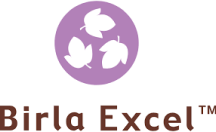
Birla Excel™ Lyocell is a fibre made by Aditya Birla from wood pulp that is sourced from forests that are independently audited to Forest Stewardship Council® standards (FSC®). Aditya Birla uses a blockchain technology-based tool (GreenTrack™) that enables the fibre to be traced upwards or downwards along the entire supply chain from source to the finished garment. The fibre contains a unique molecular tracer to enable verification of the fibre in the finished product.
Aditya Birla is Green Shirt rated in Canopy’s Hot Button Report indicating that the wood pulp used to make their fibres has a low risk of being sourced from Ancient and Endangered high-carbon biodiverse forests. Birla Excel Lyocell is also made in closed loop production plants where water and chemicals are recovered and reused minimising the risk of environmental pollution.
Birla Excel is a trademark of Aditya Birla
https://www.birlacellulose.com/product/livaeco
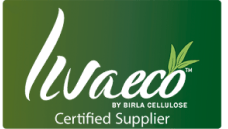
Livaeco™ Viscose and Livaeco™ Modal are fibres made by Aditya Birla from wood pulp that is sourced from forests that are certified to the Forest Stewardship Council® standards (FSC®). Aditya Birla uses a blockchain technology-based tool (GreenTrack™) that enables the fibres to be traced upwards or downwards along the entire supply chain from source to the finished garment. The fibres contain a unique molecular tracer to enable verification of the fibres in the finished product.
Aditya Birla is Green Shirt rated in Canopy’s Hot Button Report indicating that the wood pulp used to make their fibres has a low risk of being sourced from Ancient and Endangered high-carbon biodiverse forests. Livaeco™ Viscose and Livaeco™ Modal are also made in closed loop production plants where water and chemicals are recovered and reused minimising the risk of environmental pollution.
Livaeco® is a trademark of Aditya Birla.
https://www.livabybirlacellulose.com/business/livaeco
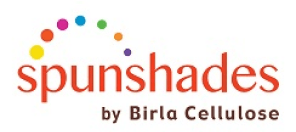
A Branded dope dyed viscose staple fibre from Aditya Birla where colour is added directly to the fibre as it is made, therefore reducing the need for water intensive dyeing methods and giving the fibre exceptional colourfastness. Aditya Birla is Green Shirt rated in Canopy’s Hot Button Report indicating that the wood pulp used to make their fibres has a low risk of being sourced from Ancient and Endangered high-carbon biodiverse forests.
Aditya Birla is Green Shirt rated in Canopy’s Hot Button Report indicating that the wood pulp used to make their fibres has a low risk of being sourced from Ancient and Endangered high-carbon biodiverse forests. A tracer is added to the fibre to control verification of the final product. Spunshades Eco-Enhanced viscose is also made in closed loop production plants where water and chemicals are recovered and reused minimising the risk of environmental pollution.
Spun Shades is a trademark of Aditya Birla.
https://www.birlacellulose.com/birla-spunshades.php
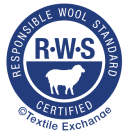
The Responsible Down Standard (RDS) is a standard that aims to improve the welfare of ducks and geese used for down.
The standard incentivises the down and feather industry to treat ducks and geese more humanely and all sites along the feather and down supply chain are required to be certified against the RDS standard. Using RDS certified feather and down helps to ensure that the feather and down in our filled products only comes from birds that have been treated humanely with no force feeding or live plucking.
RDS certified products contain certified feather and down which is fully traceable from farm to finished product through a robust chain of custody system which tracks certified feather and down through the supply chain to give credibility to content claims on products.
NEXT is Brand Certified to the Textile Exchange Standards which control the chain of custody of the claimed content throughout the entire supply chain from farm to finished product and our 3rd party brands also utilise this scheme.
https://textileexchange.org/responsible-down-standard

The Responsible Wool Standard (RWS) is a standard that aims to improve the welfare of sheep and the land they graze on.
RWS farmers and ranchers are evaluated against animal welfare, land management and social requirements set in the standard. All sites along the wool supply chain are required to be certified against the RWS standard and using RWS certified wool and RWS certified merino wool helps to ensure that the wool in our products only comes from sheep that have been treated humanely and from farms that have ceased muslin.
RWS certified products contain certified wool which is fully traceable from farm to finished product through a robust chain of custody system which tracks certified wool through the supply chain to give credibility to content claims on products.
NEXT is Brand Certified to the Textile Exchange Standards which control the chain of custody of the claimed content throughout the entire supply chain from farm to finished product and our 3rd party brands also utilise this scheme.
https://textileexchange.org/responsible-wool-standard/
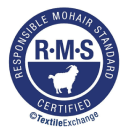
The Responsible Mohair Standard (RMS) is a standard that aims to improve the welfare of goats and the land they graze on.
RMS farmers and ranchers are evaluated against animal welfare, land management and social requirements set in the standard. All sites along the mohair supply chain are required to be certified against the RMS standard and using RMS certified mohair helps to ensure that the mohair in our products only comes from goats that have been treated humanely.
RMS certified products contain certified mohair fibre which is fully traceable from farm to finished product through a robust chain of custody system which tracks certified fibre through the supply chain to give credibility to content claims on products.
NEXT is Brand Certified to the Textile Exchange Standards which control the chain of custody of the claimed content throughout the entire supply chain from farm to finished product and our 3rd party brands also utilise this scheme.
https://textileexchange.org/responsible-mohair-standard
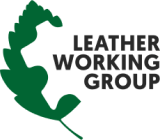
The Leather Working Group (LWG) is a global multi-stakeholder community made up of brands, retailers, product and leather manufacturers, chemical suppliers and technical experts who work together to drive best practices and positive social and environmental change in the leather manufacturing industry by developing an environmental stewardship protocol aligned to the Sustainable Development Goals.
The Leather Working Group (LWG) is made up of brands, retailers, product and leather manufacturers, chemical suppliers and technical experts that have worked together to develop an environmental stewardship protocol specifically for the leather manufacturing industry.
Certified suppliers, such as tanneries, have been audited against environmental, social and governance criteria and been certified against the LWG standard. Some are awarded a medal rating (bronze, silver, gold) depending on their environmental performance. Traceability Scores are also awarded to tanneries based on the traceability of their raw materials
NEXT is a member of the Leather Working Group and a number of our 3rd party brands are also members of the Leather Working Group.
https://www.leatherworkinggroup.com
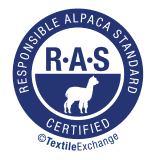
The Responsible Alpaca Standard (RAS) is a standard that aims to improve the welfare of alpacas and the ecosystems in which they are raised.
RAS farmers and ranchers are evaluated against animal welfare, land management and social requirements set in the standard. All sites along the alpaca supply chain are required to be certified against the RAS standard and using RAS certified alpaca fibre helps to ensure that the alpaca fibre in our products only comes from alpacas that have been treated humanely.
RAS certified products contain certified alpaca fibre which is fully traceable from farm to finished product through a robust chain of custody system which tracks certified fibre through the supply chain to give credibility to content claims on products.
NEXT is Brand Certified to the Textile Exchange Standards which control the chain of custody of the claimed content throughout the entire supply chain from farm to finished product and our 3rd party brands also utilise this scheme.
https://textileexchange.org/responsible-alpaca-standard
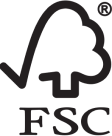
FSC®️ is a global, not-for-profit organisation that helps take care of forests and the people and wildlife that call them home.
When you see the FSC®️ label on products sold by NEXT this means they contain forest based materials from forests independently audited to Forest Stewardship Council® standards.
To learn more, visit www.FSC®️.org. Look for the FSC®️®️ logo on our FSC®️-certified products.
Our 3rd party brands also utilise this scheme and follow the same requirements in order to make the FSC claim.
https://uk.fsc.org/what-is-fsc/fsc-labels
